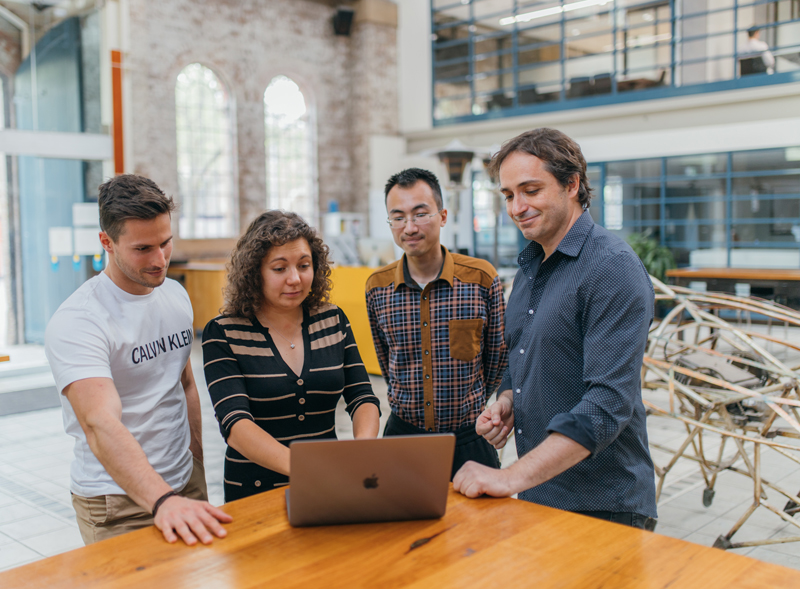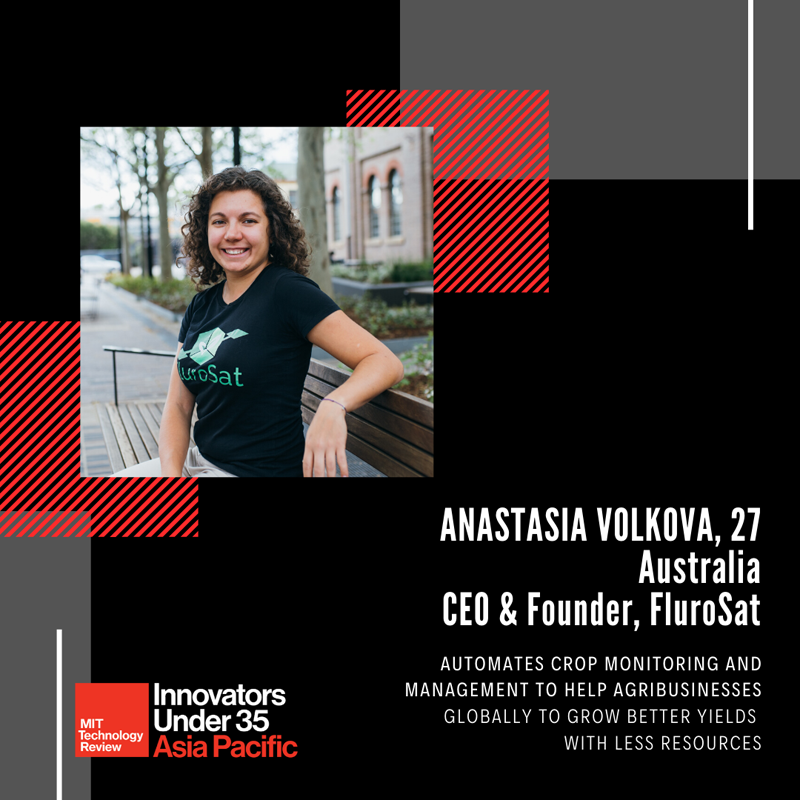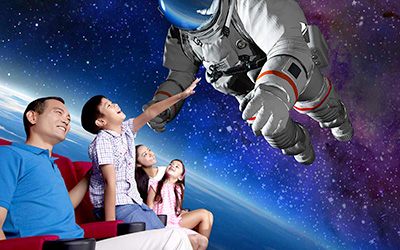It was great connecting online with high flyer – Anastasia Volkova who is an aeronautical engineer with a PhD in autonomous drone navigation! She founded FluroSat to challenge the future of conventional agriculture and build solutions to enable autonomous farming.
Imagine that? An automated solution to track, monitor, and manage your crops. From wherever you are.
Here's what she shared in an interview with us!
1. You’re armed with impressive qualifications and experience in aeronautical engineering, PhD in autonomous drone navigation as well as a host of award-winning projects and accomplishments. How did you come to focus on agriculture, identify a niche there and consider high tech solutioning for it?
“Sustainability and concerns about the global warming have certainly become the main topic of concern amongst our generation. Agriculture - the way we produce the food - is an integral part of our interaction with the planet influencing this sustainability balance."
“Whether we are good stewards of the planet or not depends on much more than one industry, but agriculture particularly yields itself to remote sensing, which is an integral part of the aeronautical engineering that I study. Learning more about the topic made me realise that there is a solution became very passionate about.”
2. How convinced are you that the way forward is what you have proposed?
“Great question! If I wouldn’t be convinced, I would find a better way to do it! And we are continuously searching. We feel it is important to remain true to our mission more than to the means we happen to choose."
“We believe that the solution proposed by FluroSat is the best mix of proven agricultural science, modern technology and the commercial realities of the industry. This is a solution that will practically improve the "now", whilst there might be fundamentally different approaches for human nutrition in the future! At that point we will probably not have to worry about the future of the planet.”
3. Industrial automation met its fair set of challenges back in the day. But it’s since become widely accepted and has matured to the fourth industrial revolution (industry 4.0 today). Yet, you speak of challenges in enabling autonomous farming, and probably rightly so. For the uninitiated, what are some of the things that stand in the way of such an introduction?
“As you rightly pointed out, we have accepted the benefits that industrial automation has brought to us, and gradually molded our infrastructure and processes to take advantage of them."
“I believe agriculture is going through similar transformations, overcoming challenges with connectivity, large scale data collection (capturing the plant world is not easy) and resource availability (water shortage) in the first place."
“We also expect that the next generations of farmers will be "digital-natives" and this generational change will drive further digitisation of the industry. Once we have the resources to farm and the connectivity of our processes, the industrial transformation will take place at even larger scale than it is today.”

4. In the near future, do you foresee working with other Australian companies like Dendra Systems who are piloting large-scale ecosystem restoration projects?
“We see our future in supporting agriculture for as long as you can see crops from space (as long as there are outdoor farms). We are always open to partnerships and have looked at opportunities to work with companies, which do land management for both restoration and amelioration (of farmland)."
“Often understanding how to restore an ecosystem involves the analysis of what practices were followed and what outcomes were achieved on that land - the information FluroSat can provide.”
5. If your endeavours take off in a significant way across industry, do you have your eyes set on another industry where you might apply yourself similarly – with precision high technology?
“The information that we are currently applying to improve the processes within agricultural supply chain is extremely useful to industries supporting it - government, insurance, banking."
“When there will be equitable collaboration models that support the interests of the stakeholders that we currently serve - food producers, advisors, and processors, the benefits of the data and analytics that we have will certainly be felt outside agriculture. I look forward to more cross-industry collaboration emerging in the next 5-10 years.”
Anastasia Volkova will be among other promising Innovators Under 35 (like Ka Yi Ling and Connor), presenting at the EmTech Asia Conference happening over 4-6 Aug 2020.





.jpg)



